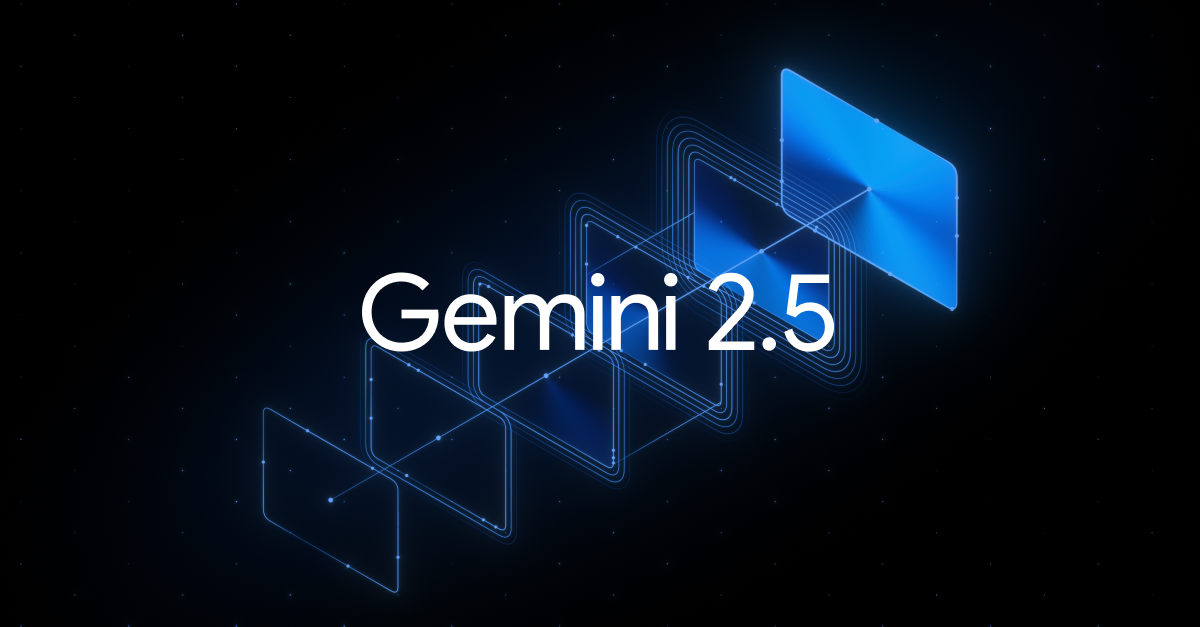Google Gemini 2.5: The Native Multimodal Titan

TL;DR
- Gemini 2.5 Pro: SOTA algorithmic coder with "Deep Think" mode—unique video-to-code capability
- Gemini 2.5 Flash: Best price/performance—fast, efficient, but lacks code execution
- Only truly multimodal model: Native text, code, images, audio, AND video processing
- Deep ecosystem integration: Google Search grounding, Vertex AI RAG, advanced security
Google's Gemini 2.5 family (Pro, Flash, and Flash-Lite) represents a portfolio built on a foundation of native multimodality and deep integration with the Google ecosystem.
This is not just another AI model—it's the only model with true, native multimodality across text, code, images, audio, and video, enabling entirely new product categories like video-to-code and affective dialogue.
Gemini 2.5 Pro: The SOTA Algorithmic Coder
The "State-of-the-Art" Model
Context: 1M | Output: 65K | Type: Best for highly complex tasks
This is Google's top-tier "state-of-the-art" model, described as the "best for coding and highly complex tasks".
SOTA Benchmarks: Code Editing & Algorithmic Coding
Gemini 2.5 Pro (with its "Thinking" mode enabled) posts SOTA scores on several highly specialized coding benchmarks:
| Benchmark | Score | What It Measures |
|---|---|---|
| Aider Polyglot | 82.2% 🏆 | Code editing across languages |
| LiveCodeBench | 69.0% 🏆 | Algorithmic code generation |
| SWE-Bench Verified (Single) | 59.6% | Real-world bug fixing |
| SWE-Bench Verified (Multiple) | 67.2% | Real-world (multi-attempt) |
"Deep Think": Algorithmic Specialization
"Deep Think" is Google's experimental, enhanced reasoning mode. The benchmarks it excels at reveal its specific purpose:
Deep Think Achievements
- SOTA on USAMO 2025—Olympiad-level mathematics
- SOTA on competitive coding—LiveCodeBench algorithmic challenges
Deep Think Niche
This implies a specialization not in general refactoring (like Codex) or UI generation (like Sonnet), but in highly complex, algorithmic, and mathematically-driven coding problems.
Multimodal Coding: Video-to-Code
Gemini 2.5 Pro's native multimodality enables unique "video to code" workflows. For example, it can:
Example: YouTube Video to Interactive App
"Create an interactive learning app based on a single YouTube video"—a cross-modal capability no competitor currently offers.
Gemini 2.5 Flash: The Cost/Performance Leader
"Best Model in Terms of Price-Performance"
Context: 1M | Output: 65K | Type: High-speed, high-efficiency
This is Google's high-speed, high-efficiency model, and the "first Flash model that features thinking capabilities".
The Pro vs. Flash Divide
Gemini 2.5 Pro
"Supports code writing and can also execute it."
✓ For autonomous agentic tasks
Gemini 2.5 Flash
"Does not support code execution."
✓ For code understanding/generation only
This makes Pro the choice for autonomous agentic tasks, while Flash is for high-volume, real-time code understanding or generation (e.g., in a chatbot or as a summarizer).
Gemini 2.5 Flash-Lite: Ultra-Fast Variant
Google has also released Gemini 2.5 Flash-Lite, an even faster, lower-cost model priced at $0.10/1M input tokens for "latency-sensitive tasks like translation and classification".
The Strategic Moat: Native Multimodality
Google's primary, defensible advantage is its truly multimodal architecture. All competitors handle text and images. Google's Gemini 2.5 models are natively built to process:
Text & Code
Images
Audio
Video (Unique to Gemini)
Native Audio Capabilities: A Major Differentiator
This is not simple text-to-speech. The Gemini Live API supports a new class of conversational applications:
Native Audio Output
For natural, expressive conversation—not a robotic voice
Affective Dialogue
The model can detect the emotion in a user's voice and respond appropriately
Proactive Audio
The model can ignore background conversations and knows when it is appropriate to speak
Deep Ecosystem Integration
Gemini 2.5 is deeply embedded in Google's enterprise and consumer ecosystems:
Grounding with Google Search
Natively integrated with "Grounding with Google Search"—real-time information access
Vertex AI RAG Engine
Natively integrated with the "Vertex AI RAG Engine"—enterprise-grade retrieval-augmented generation
Project Mariner (Computer Use)
"Project Mariner" provides "computer use capabilities," a direct competitor to Anthropic's SOTA OSWorld agent
Advanced Security
Google is explicitly marketing "advanced security safeguards" against "indirect prompt injections"—critical for enterprise agents
When to Use Each Gemini Model
Use Gemini 2.5 Pro When:
- ✓ You need complex algorithmic coding or mathematical problem-solving
- ✓ Autonomous agentic tasks that require code execution
- ✓ Multimodal R&D: video-to-code, audio analysis, cross-modal workflows
- ✓ Deep ecosystem integration needs (Google Search, Vertex AI)
Use Gemini 2.5 Flash When:
- ✓ High-volume code understanding or generation (chatbots, summarizers)
- ✓ Cost optimization is critical—best price/performance ratio
- ✓ Real-time code assistance where speed matters most
- ✓ Tasks don't require code execution—analysis and generation only
Using Gemini with CodeGPT
CodeGPT provides seamless access to both Gemini 2.5 Pro and Flash directly in VS Code through OpenRouter.
- Switch between Pro and Flash based on task complexity and budget
- Built-in BYOK support for Google AI API keys
- Orchestrate with other models: Use Gemini for algorithmic tasks, Claude for frontend
- Cost tracking and token usage analytics
Ready to Use Native Multimodal AI?
Get instant access to Gemini 2.5 Pro and Flash with CodeGPT's unified interface.
Get Started with CodeGPT